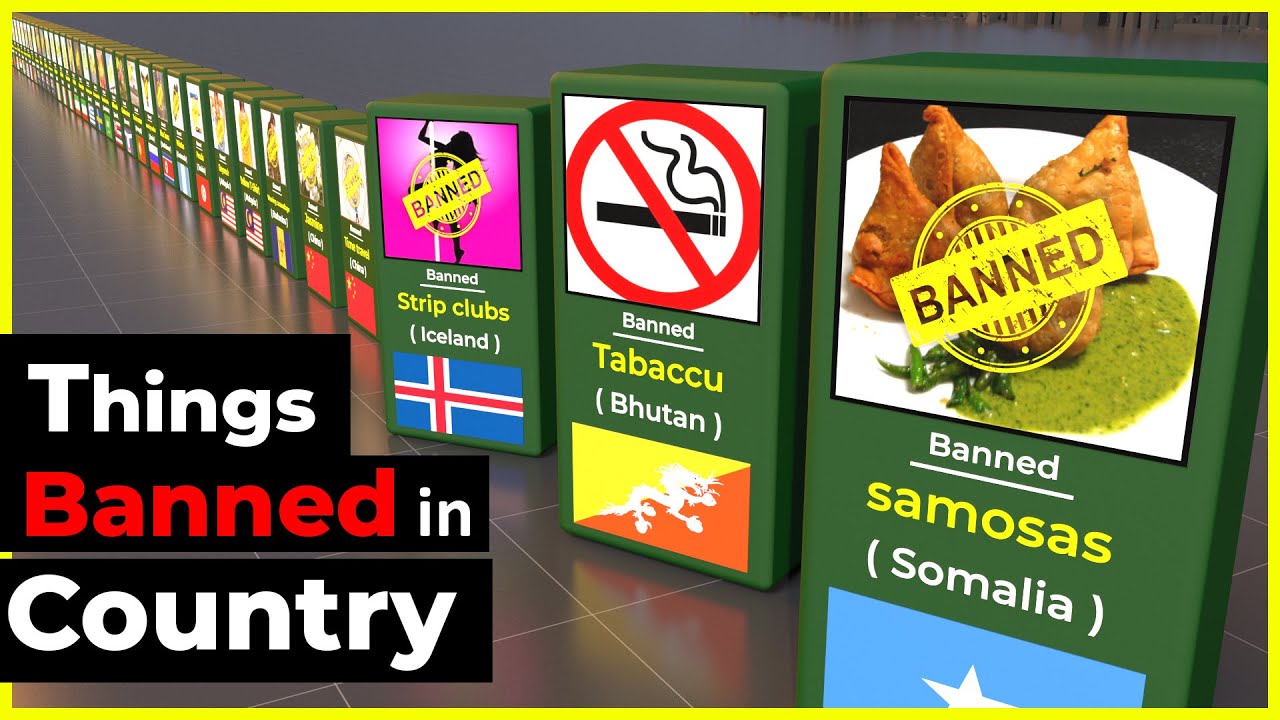Every country has its own culture, traditions, and rules. But sometimes, the bans they enforce can surprise the rest of the world. From chewing gum to baby names, here are some of the strangest things that are banned in certain countries.
Chewing Gum – Singapore
Singapore is famous for being one of the cleanest cities in the world. To maintain this, the country banned chewing gum in 1992. Importing or selling gum can get you fined heavily. The only exception? Gum for medical use, like nicotine gum for quitting smoking.
Baby Names – Denmark & Iceland
In Denmark, parents can’t just pick any name for their child. There’s a government-approved list of 7,000 names, and if you want something unique, you need official approval. Similarly, in Iceland, names must fit the Icelandic language system — for example, names with letters not in the Icelandic alphabet are rejected.
Video Games – Greece

In 2002, Greece passed a law banning all video games, online and offline, to combat illegal gambling. Though later modified, for years it was technically illegal to play even simple games like chess on your computer!
Ketchup in Schools – France
France takes food very seriously. To preserve its traditional cuisine, the government banned the use of ketchup in school cafeterias in 2011, except when served with French fries.
Kinder Surprise Eggs – United States
Those chocolate eggs with a toy inside are beloved in many countries, but in the US they are banned because toys hidden inside food are considered a choking hazard. Instead, the US allows Kinder Joy, where the toy and chocolate are packaged separately.
Reincarnation Without Permission – China (Tibet)

In Tibet, Buddhist monks cannot reincarnate without government approval. This unusual law was introduced by China in 2007 to regulate religious authority.
Blue Jeans – North Korea
In North Korea, wearing blue jeans is banned, as they are considered a symbol of Western culture and capitalism. Black jeans, however, are allowed.
Lip-Syncing – Turkmenistan
Turkmenistan banned lip-syncing in concerts, on TV, and even at weddings in 2005. The government wanted to promote authentic singing and protect the country’s cultural heritage.
Conclusion
These bans may seem unusual to outsiders, but they often reflect a country’s values, culture, or political stance. From gum in Singapore to ketchup in France, such rules remind us how diverse the world really is.




